IMAGE CREDIT: Sacha Cine
- The Muyuna Floating Film Festival featured a unique floating screen and brought films directly to riverside communities in the Peruvian Amazon.
- Rainforest Foundation US (RFUS) supported an Indigenous Cinema Workshop during the film festival.
- The event underscored the urgent need to understand these issues from the perspective of Indigenous peoples and local communities–who are best positioned to tell their own stories of resistance.
In May, the Muyuna Floating Film Festival illuminated Iquitos, a city in the heart of the Peruvian Amazon. As the largest city in the world without road access, Iquitos depends on its rivers for communication and transportation. The festival, with its unique floating screen, brought cinema to the city’s most impoverished riverside areas.
“In a world that is sinking, we learn to float.”
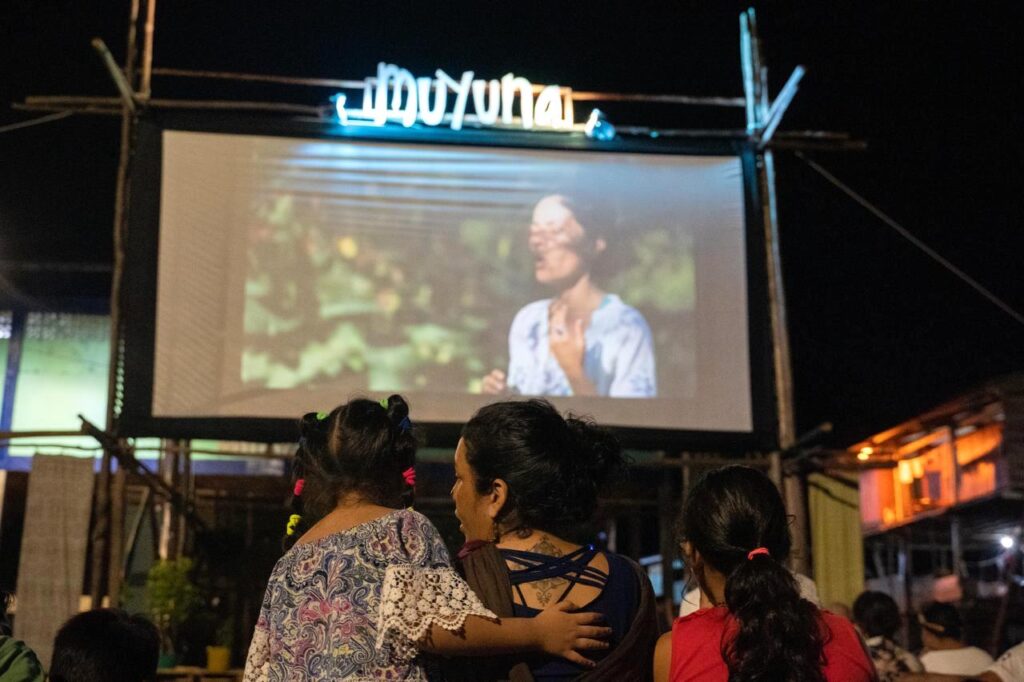
“In a world that is sinking, we learn to float,” was the motto that graced banners alongside the floating screen. The festival showcased films from Peru, Brazil, Taiwan, Indonesia, and 15 other countries, each highlighting stories of climate change and the Indigenous land defenders on the frontlines of rainforest protection.
Organized by a multicultural team of young filmmakers and activists, many of whom are Indigenous, the 12-day event offered numerous opportunities for hands-on learning. There were two community film workshops and an audiovisual creation lab. These resulted in 15 short films produced entirely during the course of the festival by the participants from various regions of Latin America.
“We aimed to raise awareness of the destructive threats to rainforests worldwide and to organize a collective response.”
“The festival invited participants to rethink the relationship between humans and nature. By creating a meeting point for activists, filmmakers, and Indigenous peoples, we aimed to raise awareness of the destructive threats to rainforests worldwide and to organize a collective response,” said festival co-director Daniel Martinez-Quintanilla.
Rainforest Foundation US supported a multi-day Indigenous Cinema Workshop during the festival. Four renowned Indigenous filmmakers representing the Guna people of Panama, the Sápara people of Ecuador, and the Kukama people of Peru facilitated the workshop, which brought together 56 participants from across the Peruvian Amazon.
Cultural Revival
The festival was held in Belén, one of the most marginalized areas in Iquitos. Formed in the 1920s during the rubber boom, the district is a product of the systemic brutality of that time. European industrialists captured and displaced tens of thousands of Indigenous men, women, and children across the Amazon, and forced them to work in rubber plantations near cities like Iquitos.
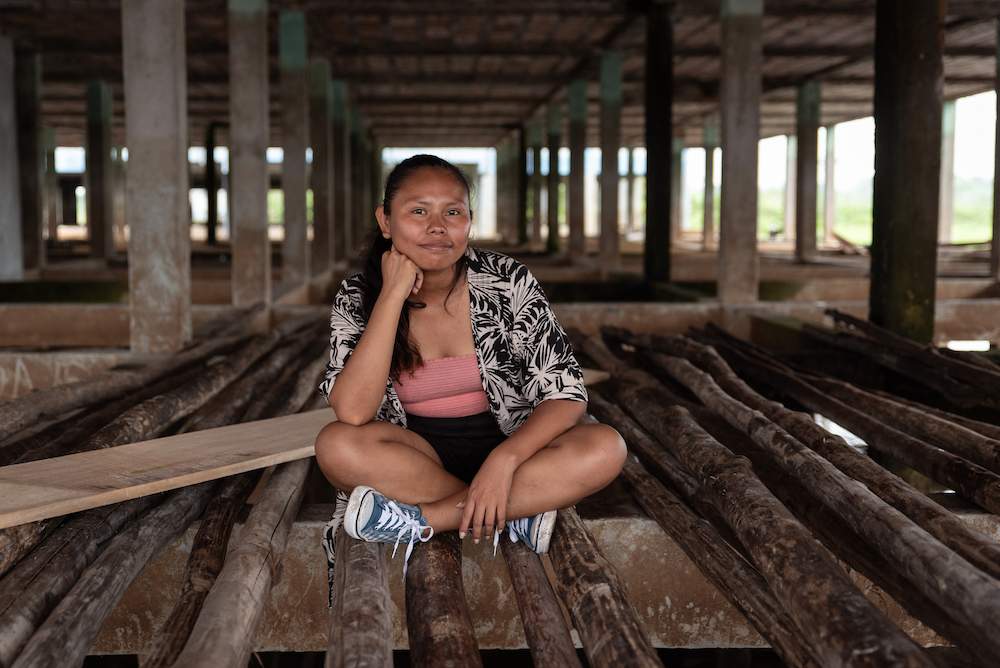
Now home to around 70,000 people, the sprawling neighborhood faces significant challenges, including a lack of proper waste management and drainage systems. Homes are built on stilts, and the entire neighborhood is flooded for six months each year by the Itaya River.
Although the river is central to their way of life, the people of Belén do not tend to identify as Indigenous. Their grandparents were forced to abandon their origins, language, and customs to avoid discrimination. This discrimination persists among today’s generation.
Festival producer Livia Silvano, 24, was the first-ever filmmaker to emerge from Belén. Recently, by tracing her maternal surname, she uncovered her identity as Kukama and identified the community from which her family hailed.
“Cinema is a tool for transformation.”
“Cinema is a tool for transformation,” she said. “As long as I have a camera in my hands, I will continue telling stories of change, without prejudice or discrimination.”
In addition to bringing the novelty of a large, floating screen to many who had never visited a movie theater, the festival served as a public celebration of Indigenous identity in a context where such positive representations are scarce.
Indigenous Film Workshop
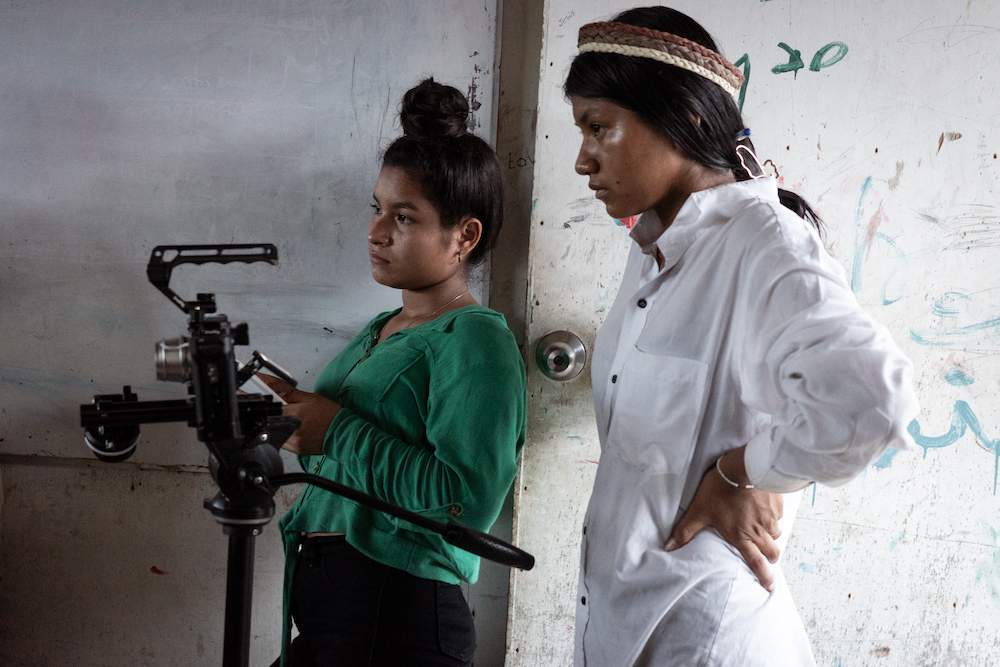
“Why are there so many important things about the Amazon that were hidden?” Leonardo Tello, a workshop facilitator and Kukama filmmaker from the Marañon river, asked a room full of participants during the Indigenous Film Workshop.
Ranging in age from 17 to mid-60s, participants included representatives of the Kukama, Ikitu, Mayoruna, Achuar, Shipibo-Conibo, Witoto-Mahuani, Harakmbut, and Kichwa peoples.
All of these peoples were nearly decimated by the rubber boom, a brutal period which appears as merely a footnote in many history books.
Tello added that despite the systematic erasure of Indigenous history, the truth is always there—if you know where to look.
He pointed at the metaphors for oppression woven into the folklore of his people. In cautionary childrens’ stories, blood-sucking beasts roam the rubber plantations looking for human prey. In fisherman tales, eerie ghost ships still float along the rivers at night—echoes of the pleasure barges of the late rubber barons.
“The most important thing is to collect memories,” he impressed upon the participants. “There, we find what cannot be found in the church or in universities.”
Over the course of two days, the workshop, supported by Rainforest Foundation US, covered two main themes; Indigenous narratives in cinema, and film as a tool for territorial defense.
Many of the participants arrived from Indigenous territories impacted by extractive economies including illegal logging, gold mining, and oil exploration. On the first day, they learned to use photographs and videos to build evidence for a legal case, as well as preventive measures that can be used to increase community safety and security.
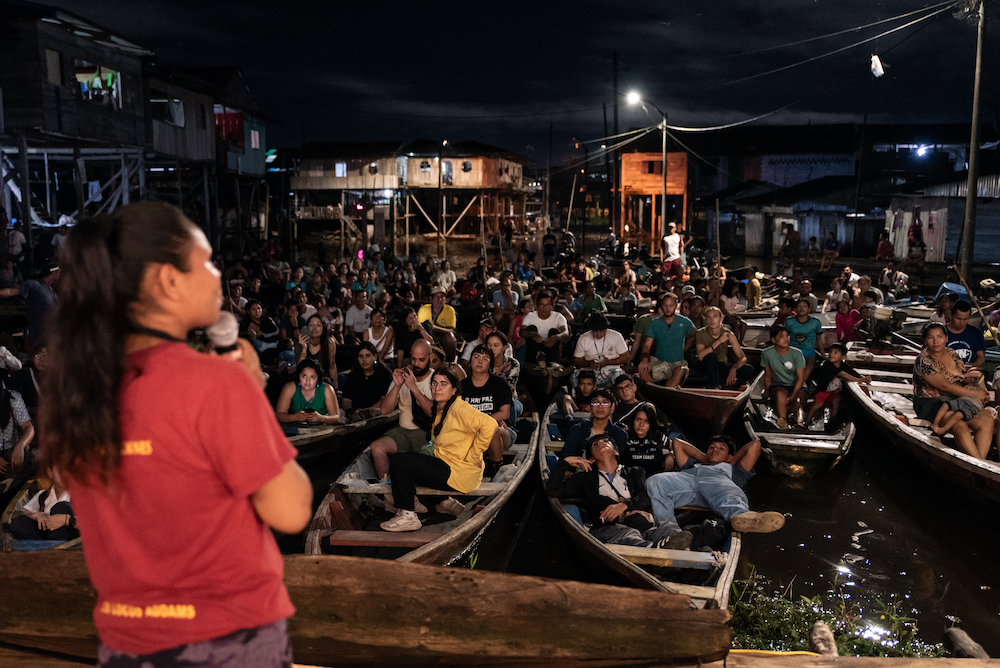
Yanda Montahuano of the Sapara people of Ecuador was an ideal facilitator on this subject. His 2022 film Allpamanda combined archival material and powerful interviews to recount seven emblematic cases of territorial threats and the struggle for land rights in the Ecuadorian Amazon.
Meanwhile, Tello furthered the discussion on land rights, presenting unique maps of participants’ legal territories and encouraging participants to identify sacred sites and hunting grounds, many of which fall outside their recognized borders.
On the subject of Indigenous narratives, Yaili Castillo and Alcibiades Rodriguez, from the Guna Yala territory of Panama, started the day by asking participants to categorize elements of their daily life that were unique to their culture versus those that had been appropriated or imposed. This provoked lively discussion, including debates on food, customs, stories, and spiritual beliefs.
They also facilitated discussions on Indigenous representation in media. Participants were split into groups, where they created a set of ideal protocols for foreign filmmakers to follow when visiting their territories.
On the final afternoon, participants split into four groups focusing on different communication formats: photography, podcasting, animation, and short films. The resulting works included photo essays and short films, capturing the essence of their cultural narratives and territorial concerns.
More to Come
Unique in many ways, the 2024 Muyuna Floating Film Festival was the first event of its kind–and it will certainly not be the last.
“What we are doing is seeking to generate change through community cinema.”
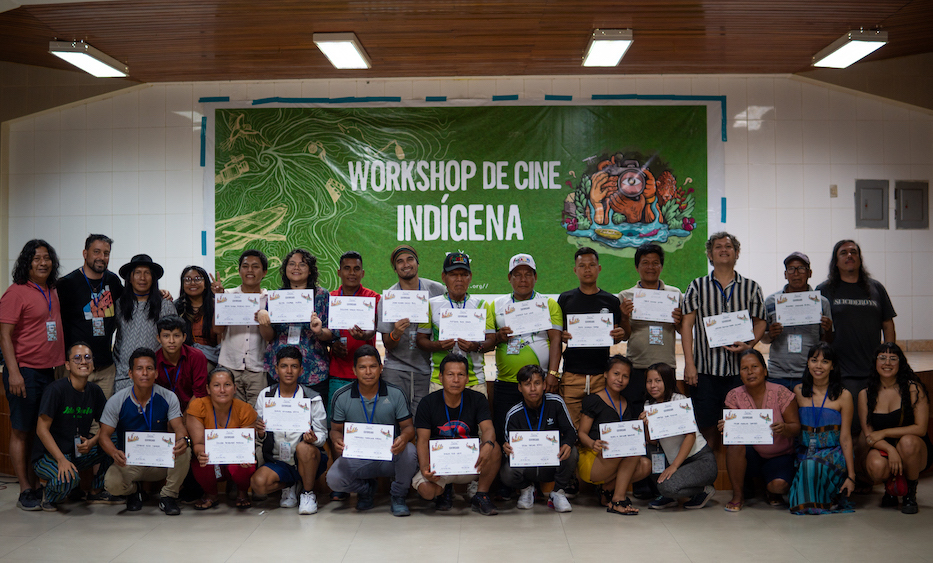
“What we are doing is seeking to generate change through community cinema, and to discover and explore the relationships between humans and forests around the world,” said Silvano. She and her fellow organizers were thrilled to see the outpouring of support and interest from Belén, and beyond.
RFUS’s support was instrumental in bringing facilitators from abroad, covering transportation costs, providing meals for participants, and renting the venue.
“By providing essential resources, we aimed to support communities in sharing their stories and advocating for their rights.” said Beth Duncan, Communications Director at RFUS. “Looking ahead, we plan to continue supporting such initiatives, as we have seen firsthand the profound impact that strong Indigenous voices can have on forest protection and climate action.”








